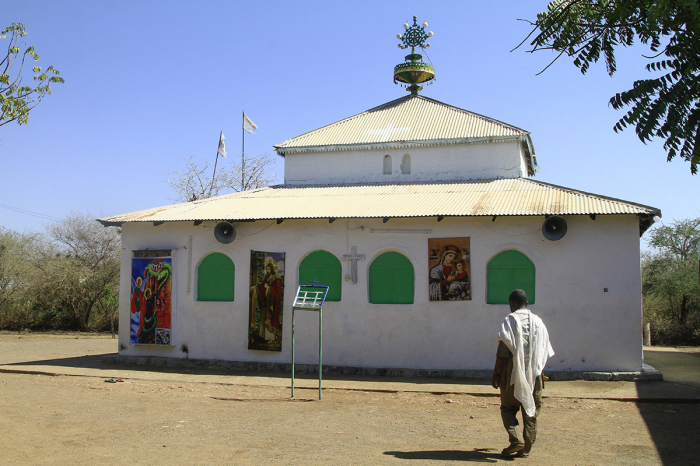
Churches are playing a "significant but often overlooked role" in integrating refugees and asylum seekers into British society, a new report from Theos has said.
The report calls for the development of a national integration strategy that includes churches in strategic decision-making alongside policymakers and charities.
Theos argues that while the immigration debate often centers on reducing net migration, less attention is given to how to integrate those who are already here. It highlights the work of churches in doing exactly this on both a practical and spiritual level, offering food banks, English classes and legal help as well as friendship, emotional support, and a sense of community.
The report seeks to address "misconceptions" surrounding church activities, including what it says are "unfounded" allegations of proselytism and "fake conversions."
"Churches offer unique strengths in integration efforts precisely because they are communities rooted in shared values and relationships rather than transactional service provision alone," Theos says.
"However, the role of religion, particularly Christianity, in the integration process is often viewed with suspicion."
The report says that concerns about proselytism and the supposed complicity of churches in facilitating so-called fake conversions to secure asylum status have "cast doubt on the positive contribution of churches to the lives of refugees."
The report, however, found "no evidence of an industrialized ‘conveyor belt’ approach to baptism, nor that conversions are ‘bogus’ or insincere." The argument that baptism can help asylum seekers gain leave to remain was also "unfounded."
"While religious conversion is a factor in some asylum cases, it is exceedingly rare," the report said.
In 2023, only seven asylum seekers were granted leave to remain on the basis of religious conversion.
"Furthermore, the Upper Tribunal does not recognize clergy testimony as expert evidence, nor does it treat religious conversion as a determinative ground for asylum.
"Churches across the U.K. do a lot for asylum seekers and refugees, as we have seen. It is therefore unsurprising that many asylum seekers and refugees — though by no means all — are drawn to inquire about the faith that has helped them.
"The idea that welcoming people with no ulterior motive might lead some to genuine conversion should not be alarming.
"Nor should it surprise the wider public that individuals gravitate towards warm, compassionate communities. Indeed, conversions occur commonly even in churches that have deliberately avoided active evangelisation."
The report argues that churches complement the work of voluntary and statutory organisations, but it also finds that many are "overwhelmed" by the scale of the need at a time when they are battling with fewer volunteers and limited financial resources.
"Church leaders described being overwhelmed by emotional and practical burdens, exacerbated by the traumatic experiences of those they support," the report said.
"Burnout, fatigue and feelings of isolation were common themes in the interviews, particularly as demand for help continues to increase."
Some interviewees spoke of "negative perceptions" toward their efforts by statutory bodies, charities, and even businesses, such as asylum accommodation providers. They felt this had "significantly hindered their ability to carry out their social work."
On the other hand, the report said that some churches had an unfounded fear of putting non-Christian refugees off, even going so far as to remove overtly Christian symbols and literature.
"Staff at one church-run refugee centre were genuinely concerned that if they left Christian literature in sight, non-Christian service users might think they had to convert to get coffee," the report read.
"Interviews with both church leaders and Muslim refugees, however, suggest that explicit Christian expressions of care generally do not deter non-Christians from seeking help.
"Non-Christian refugees often view church-based support positively, appreciating assistance irrespective of religious context.
"Indeed, several church leaders argued that fears of proselytism reflect broader British societal discomfort with openly expressed Christianity, rather than refugees’ genuine concerns."
The report calls for churches to be given "a seat at the table" in strategic discussions at local, regional and national levels.
"Despite providing key frontline services and serving as an essential safety net, churches often remain isolated from strategic partnerships," it says.
"By virtue of the significant work of churches in local communities across the U.K., and for the benefit of refugees and their integration in the U.K., we believe it is essential that churches have a seat at the table."
It also calls for refugees and asylum seekers to be given the right to volunteer: "While charities up and down the country do much for asylum seekers and refugees, only initiatives enabling them to give back and have a stake in the well-being of their host communities can foster their dignity and sense of purpose."
This article was originally published at Christian Today